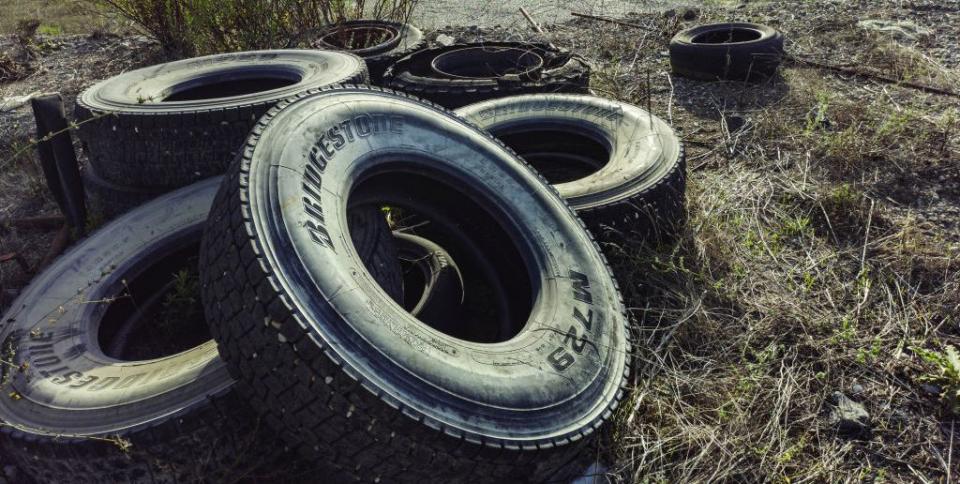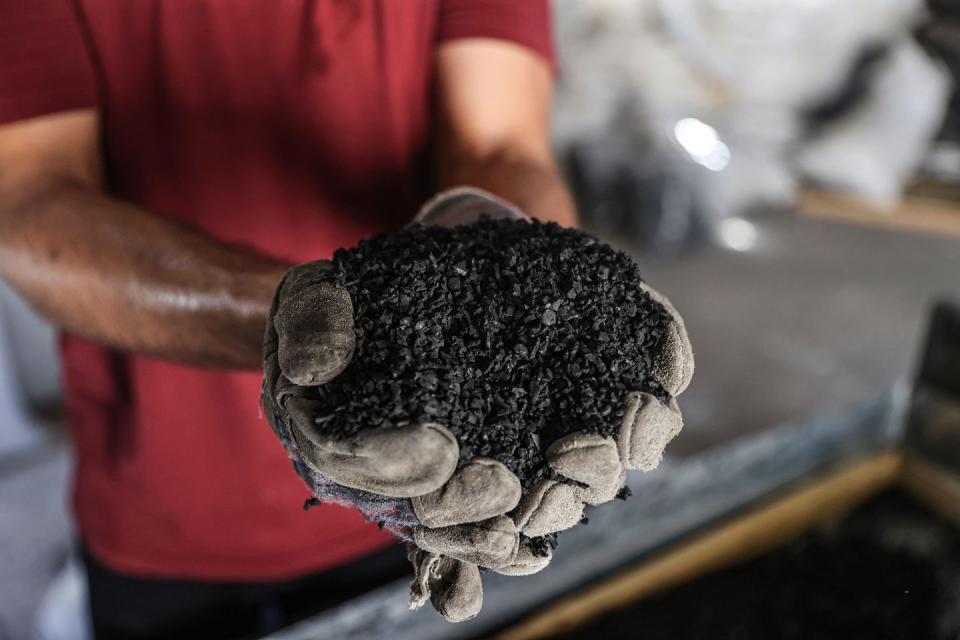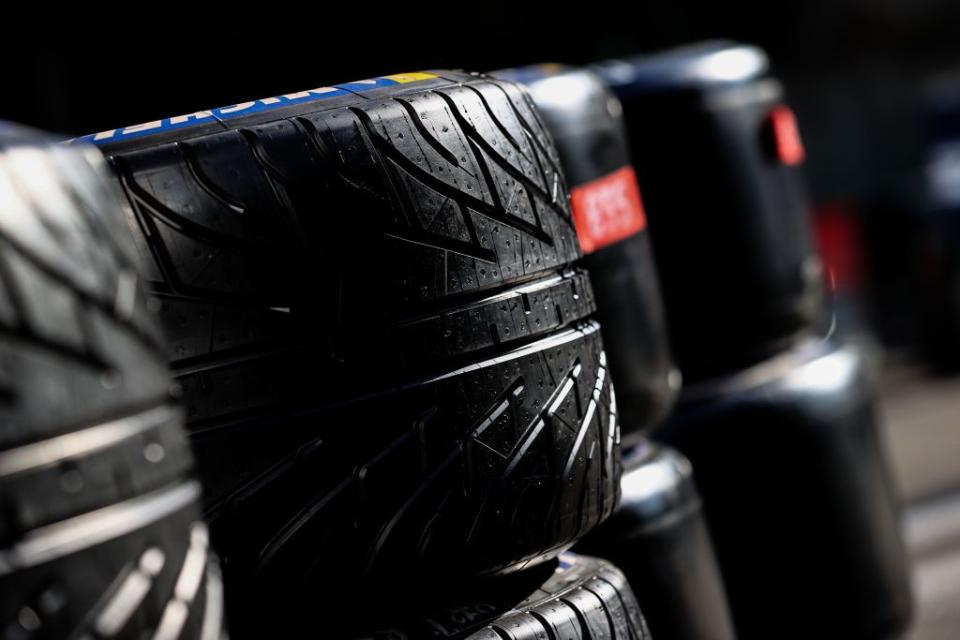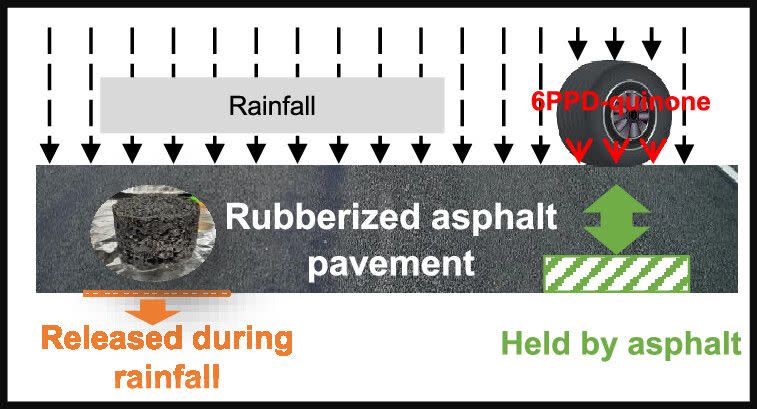Indigenous Tribes Ask EPA to Save Salmon by Addressing Tire Chemicals

Tire production and usage is a lesser-known but adversely impactful part of the automotive industry's environmental effects at large.
Following documented chemical waterway pollution, a series of indigenous tribes and legal nonprofits are petitioning the EPA to ban 6PPD, a commonly found preservative chemical.
Researchers at the University of Nevada, Reno, believe that recycling tires into newly paved roads will help limit the reach of 6PPD going forward, according to a newly published study.
Every mile you drive, the more wear you put on your car. Of all the consumables on your vehicle, tires are arguably the most susceptible to the environment around them.
It works both ways, however, as studies show tires are actually just as environmentally impactful as the emissions coming out of tailpipes worldwide. Microscopic tire particles are shed into the air with every mile, as 2022 studies claimed that levels of rubberized airborne pollutants were actually growing above that of tailpipe emissions.

Additionally, a preservative chemical found in nearly every road-going tire known as 6PPD has been previously linked to devastating water pollution, specifically the killing of mass populations of salmon in the Pacific Northwest.
And indigenous tribes, in particular, have been adversely affected by this chemical runoff, resulting in years of reduced fishing and the pollution of entire hatcheries.
That's why three tribes—the Yurok, Port Gamble S'Klallam, and Puyallup—have petitioned the Environmental Protection Agency to prohibit the manufacturing, processing, use, and distribution of 6PPD in and for tires.
Spanning from Northern California to the Canadian border in Washington, these tribes claim such pollution actually violates their sovereign fishing and hunting rights.
"To see 6PPD-q kill the salmon that are reared in the Port Gamble S'Klallam Tribe's own streams and from its own hatchery is an unconscionable slap in the face to a people who rely on salmon for their wellbeing, in addition to being a gross violation of the Tribe's rights as enshrined in the 1855 Treaty of Point No Point," said Josh Carter, the Port Gamble S'Klallam Tribe's environmental scientist. "If EPA truly cares about protecting the environment and the Tribe's Treaty Rights, not just industry's pocketbooks, it will act now."

Working with legal-nonprofit Earthjustice, the tribes assert that regulating the chemical is the EPA's duty under the Toxic Substances Control Act, which requires the EPA to ban or regulate chemicals that pose unreasonable risks to human health or the environment.
Additionally, the petition says the agency should order phase-outs of existing tires using 6PPD on the fastest practicable timeline. Notably, the Department of Toxic Substances Control in California and the European Chemicals Agency have previously labeled 6PPD as a harmful additive for human interaction.
In an email to Autoweek, a spokesperson for the EPA said the agency is reviewing the petition but had no further comment. According to a representative from Earthjustice, the EPA has 90 days to respond to this petition, though it's unclear what the first steps toward removing the chemical would be.
While scientists generally agree that 6PPD isn't safe for our waterways, the solution for automotive tires is more complicated. Researchers at the University of Nevada, Reno, believe they've found a solution and it actually comes from tire rubber itself.

Instead of tossing tires in the landfill—or, worse yet, burning them—the study claims that repaving roads with a mixture of rubber-modified asphalt partially prevents the harmful seepage of 6PPD into the environment. This recycled rubber-integrated asphalt allegedly reduces production costs by 43% and produces 32% fewer CO2 emissions during manufacturing, according to the Recycled Rubber Coalition.
With approximately 250 million scrap tires available per year, this solution could reduce the need for landfill space, while ramping up recycling for a difficult-to-dispose-of product.
Earthjustice Views Rubber-Modified Asphalt as ‘False Solution’
The folks at Earthjustice aren't so sure about this solution, though. In addition to relying on already chemical-saturated tires, the organization claims current stormwater practices are generally insufficient to remove 6PPD, indicating the solution will need to go beyond simply repaving roads.
"Earthjustice views rubber-modified asphalt as a false solution that will only allow for the continued use of this harmful chemical. We are petitioning the EPA for a ban on 6PPD because so-called solutions like rubber asphalt will only kick the can down the road and allow for continued impacts to already-vulnerable aquatic species," a representative from Earthjustice told Autoweek.
It remains unclear how the EPA will respond to this petition, but this action by a group of indigenous tribes could pressure tire manufacturers to act with urgency. Previous reporting indicates that tire companies have acknowledged the harmful of effects of 6PPD but claim to not yet have a viable chemical replacement.
Even so, they may be required to use less harmful compounds in the near future.
Do you work on your own car? If so, how do you dispose of toxic liquids or corrosive parts? Please share your thoughts below.

 Yahoo Autos
Yahoo Autos 